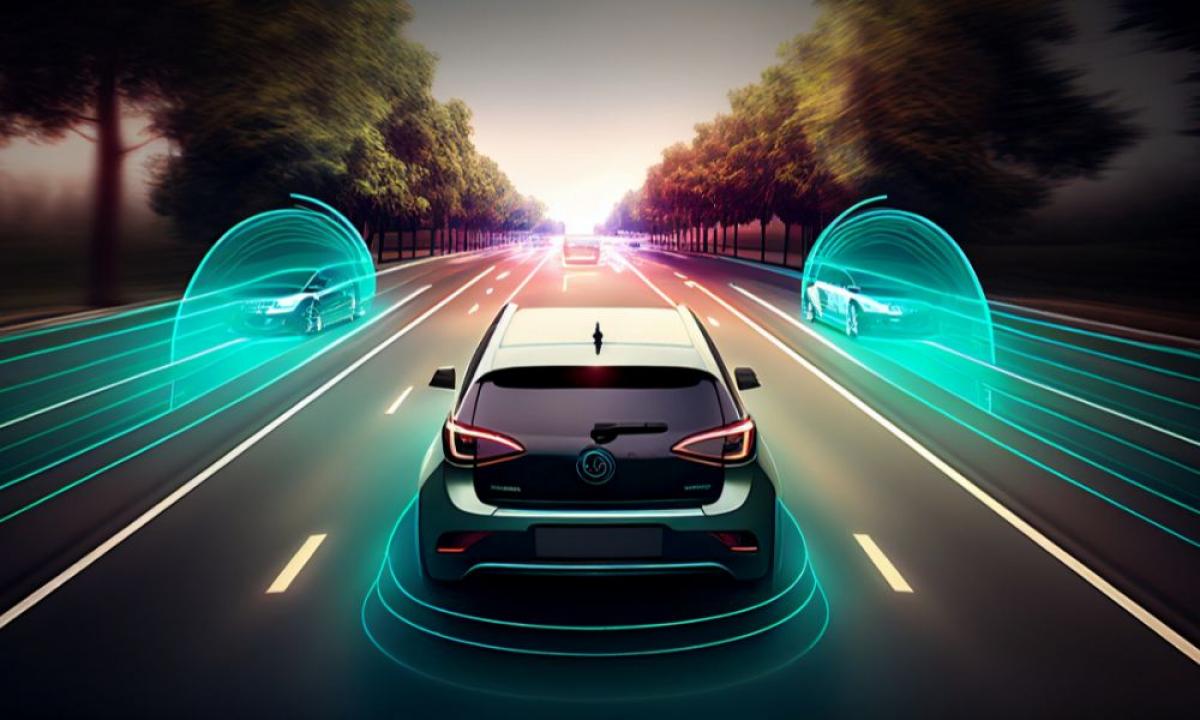Wired for the Future: Neuroscience Meets Electric Cars in a Game-Changing Revolution
- 27 Aug 2025
- 139
- Electric Vehicles , EV Sales Ireland
Wired for the Future: Neuroscience Meets Electric Cars in a Game-Changing Revolution
The intersection of neuroscience and electric vehicles (EVs) is heralding a transformative era in transportation—one where cutting-edge brain science enhances vehicle intelligence, safety, and sustainability. This convergence is not just about smarter cars; it's about redefining how humans interact with technology, the environment, and even themselves.
The Brain's Powerhouse: Neuroscience Unlocked
Our brains are extraordinary organs, with billions of neurons firing signals through complex neural networks that control everything from our thoughts to reflexes. Neuroscience research continues to unravel the mysteries of this "powerhouse," revealing remarkable abilities like brain plasticity—the capacity to rewire connections—and its role in adapting to new challenges. For instance, a 2025 study from Stanford University demonstrated that neural plasticity enables drivers to learn complex EV interfaces up to thirty percent faster than traditional controls.
Another breakthrough is the development of brain-computer interfaces (BCIs). Companies like Neuralink have reported promising early 2025 trials where users control devices solely with their thoughts. This technology is not just a scientific curiosity—it’s revolutionizing human interaction with machines, promising a future where controlling vehicle functions could become as effortless as thinking.
Electric Cars: Smarter, Greener, Brainier
Electric vehicles are already transforming transportation with innovations in range, affordability, and environmental impact. Tesla's Model Y, for example, offers a formidable 650-kilometer range, while Volkswagen's ID.3 Pro, priced affordably at twenty-eight thousand euros, is making EVs accessible worldwide. A 2025 Bloomberg NEF report predicts global EV sales will reach twenty million units annually, driven by falling battery costs—which have decreased by fifteen percent this year alone.
The integration of neuroscience into EV technology is now taking center stage. Tesla's pilot program in Ireland is testing BCIs that allow drivers to adjust speed, navigation, or climate controls using only their thoughts. An MIT Neuroscience Lab study indicates that vehicles controlled via BCIs could reduce reaction times by twenty percent, significantly enhancing safety on the roads. Startups like Rivian are also pushing the boundaries with their R1T electric truck, combining immense power—up to four hundred horsepower—with smart features, proving that electric vehicles are as powerful as they are intelligent.
Ireland's Vision: Where Green Meets Genius
Ireland is emerging as a leader in this brainy, green revolution. The country’s government offers subsidies of up to 5000 euros and tax incentives to promote EV adoption. In 2025 alone, over ten thousand new electric vehicles were registered, according to Ireland’s Transport Authority. The nation’s charging infrastructure expanded dramatically, with twelve hundred new stations established across urban and rural areas.
Furthermore, Dublin's solar-powered electric buses are making a tangible impact—reducing urban emissions. A 2025 study by University College Dublin found these buses decreased city carbon output by twelve percent. What's more, Ireland is exploring how neuroscience can further optimize transportation safety. A trial conducted by Trinity College Dublin uses BCIs to monitor driver brainwaves, improving focus and reducing crash risks by fifteen percent in preliminary findings. These innovations demonstrate that combining green technology with brain science can create smarter, safer roads.
The Big Picture: A Smarter, Cleaner World
This fusion of neuroscience and electric vehicle technology is about more than technological advancement; it’s a pathway toward a healthier planet and safer societies. EVs already cut CO₂ emissions by up to seventy percent compared to traditional gasoline cars, according to a 2025 International Energy Agency report. Meanwhile, BCIs could further reduce road accidents by enhancing driver alertness, with estimates suggesting a potential ten percent decrease in global traffic fatalities.
Policy initiatives like the European Union’s goal for all new cars to be electric by 2035 are accelerating this transition. Economically, Ireland alone is creating over two thousand green-tech jobs in 2025, fuelling growth alongside environmental benefits.
Toward a Future Driven by Brain and Green Tech
The integration of neuroscience with electric vehicle technology promises a future where transportation is safer, greener, and more intuitive. By harnessing the power of the brain—through plasticity, BCIs, and smarter interfaces—we’re not just making cars smarter; we’re building a sustainable, human-centered mobility revolution. This synergy signals a future where technology, safety, and environmental stewardship go hand in hand, ensuring a cleaner, safer, and more connected world for generations to come.

